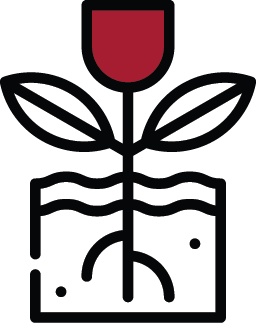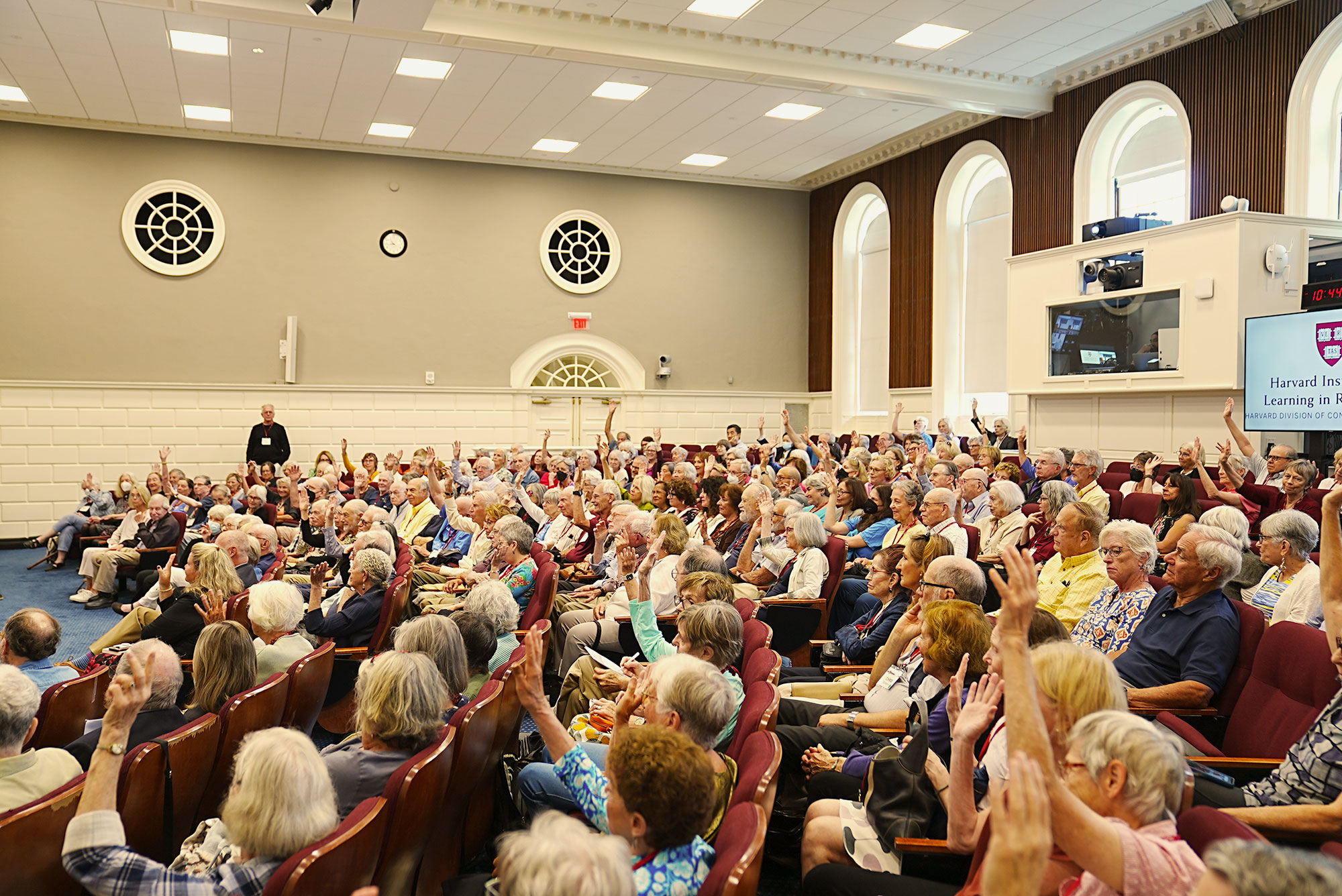On this page
Retirement.
It is a much-anticipated period of life, but the transition from work life to leisure can be disorienting.
For some, lack of structure after a long career can lead to a loss of purpose, loneliness, and even depression. But retirement can also be a dynamic phase of life, especially for those who embrace lifelong learning.
Learning in retirement, especially in a vibrant, intellectual community, helps keep your brain sharp, creates opportunities for new friendships, and helps retirees strengthen connections to the greater world. For those in retirement, learning in a supportive community improves mental health and well-being through intellectual exploration, creating opportunities for new relationships and exposure to fresh points of view.
What is Community Learning?
Community learning brings passionate learners together to share knowledge, experiences, and skills. The setting can be varied: from traditional classes in higher education, workshops, and discussion groups to online forums. No matter where it happens, community learning emphasizes collaboration, peer support, and sharing diverse perspectives, all of which enrich the learning experience.
“I can’t tell you how nice it is to discover at 68 something new that you’re good at, something you hadn’t been doing before.
Creating an Engaged Community
When people retire, they often lose social and professional networks developed over the years. Community learning, whether through a college, museum, or local senior or recreation center, provides opportunities to meet and connect with groups of adult students in welcoming spaces. Intellectual stimulation empowers community members, boosts confidence, and helps participants keep on top of current events and popular culture.
Tess O’Toole, director of the Harvard Institute for Learning in Retirement, a vibrant learning community where courses are peer-led by participants, knows the value of creating an engaged community of learners.
“People are signing on to be part of a collective enterprise that produces knowledge together; everyone has something to contribute,” she says. “They’re drawing on decades of work and life experience that they bring to the table, as learners and as leaders.”
Anita Marshall joined HILR in 2011 after a 15-year career as a social worker supporting children in foster care. Since joining, she has taken a wide variety of courses in literature and music and led a class focused on racism.
“Being in class with people, you just grow and learn so much,” she says. “People are just so eager to learn at this stage of life, and you get different points of view because we’ve all had different kinds of life experiences.”
Growth beyond the classroom
A great learning community doesn’t stop at the classroom door; it creates opportunities and experiences even after class ends. O’Toole says the ideal learning community allows people to develop their social networks.
“People form friendships here, then do things outside of the program on weekends,” she says.
Marshall agrees. She has enjoyed dinners and museum visits with the social network created through her learning community.
“I have been going to the opera with a woman from HILR for the past five years,” she says. “It’s just wonderful.”
Benefits of Joining a Community of Retired Lifelong Learners
A growing body of research shows loneliness and isolation are linked to disability, cognitive decline, and even early death. A community engaged in learning, on the other hand, creates goals to work toward and new skills to achieve, producing a sense of accomplishment and personal growth. With new knowledge also comes a stronger sense of self-confidence and purpose. This is vital for maintaining mental well-being and satisfaction in life.
“There’s a lot of research now about the importance of connection in old age, and I see it in the energy and excitement here, the laughter, and the enthusiasm. It’s very special,” O’Toole says.
Benefits of community-based learning
-

Lifelong learning is beneficial for the brain, mental well-being, and self-esteem.
-

Continued education can lead to setting and meeting exciting new goals.
-

Taking classes can help gain or update practical skills.
-

Exploring new passions connects participants with like-minded individuals.
Creating meaningful connections
One of the most important benefits of student learning is the opportunity to be part of a community of people. Studies show that people are inclined to look for relationships with those with shared goals and bond over passions for hobbies and interests.
For Marshall, the opportunity to get to know people from various walks of life has been instrumental in continuing her personal growth.
“You might think you know something, but then someone challenges you in a civil manner and it might change your point of view,” she says. “I think you grow intellectually and learn so much.”
Curiosity and creativity: The spice of life
A study of more than 1,600 seniors aged 60 and older found that lonely people were far more likely to have difficulties with walking, bathing, dressing, and climbing stairs than those who were not. Social isolation has also been found to boost the risk of cardiac disease and stroke.
Engaging in learning keeps the brain active and sharp, which can also help reduce the risk of cognitive decline. Learning new skills and adopting new hobbies can help improve memory, problem-solving abilities, and overall mental agility. Additionally, individuals in learning environments exhibit enhanced levels of well-being and optimism about the future.
Continued learning also stimulates neuroplasticity, the brain’s ability to reorganize itself by forming new neural connections. In other words, engaging in new activities and acquiring new skills strengthens the brain, keeps it sharp, and makes it more resilient.
It’s also a chance to indulge your curiosity and creativity, something that might not have been as readily available during working years.
“For a lot of our people, there are things they might be studying here that they didn’t have the opportunity to do in college because they were majoring in something else or weren’t interested in at the time,” O’Toole says. “This is an opportunity to explore other things.”
As one student told her, “I can’t tell you how nice it is to discover at 68 something new that you’re good at, something you hadn’t been doing before.”
Ready to Join a Learning Community for Retirees?
There are many ways to join learning communities, whether through community organizations or higher education institutions. Some are multigenerational and others, like HILR, are specifically designed for retirees.
HILR is an intensive liberal arts program that holds in-person classes on its Cambridge campus. It is geared specifically for retired and semi-retired individuals. The diverse community of learners includes experts in the fields of education, law, business, medicine, social work, engineering, architecture, technology, the arts, and more.
Learning for the sake of learning is one of the rewards of retirement, Marshall says.
“It’s like a new phase of life. It’s almost like a second chance at learning. You don’t have to worry about grades and you can take whatever class you want, and if they don’t have it, you can do research and lead that study group. It is an opportunity to get and also to give.”
